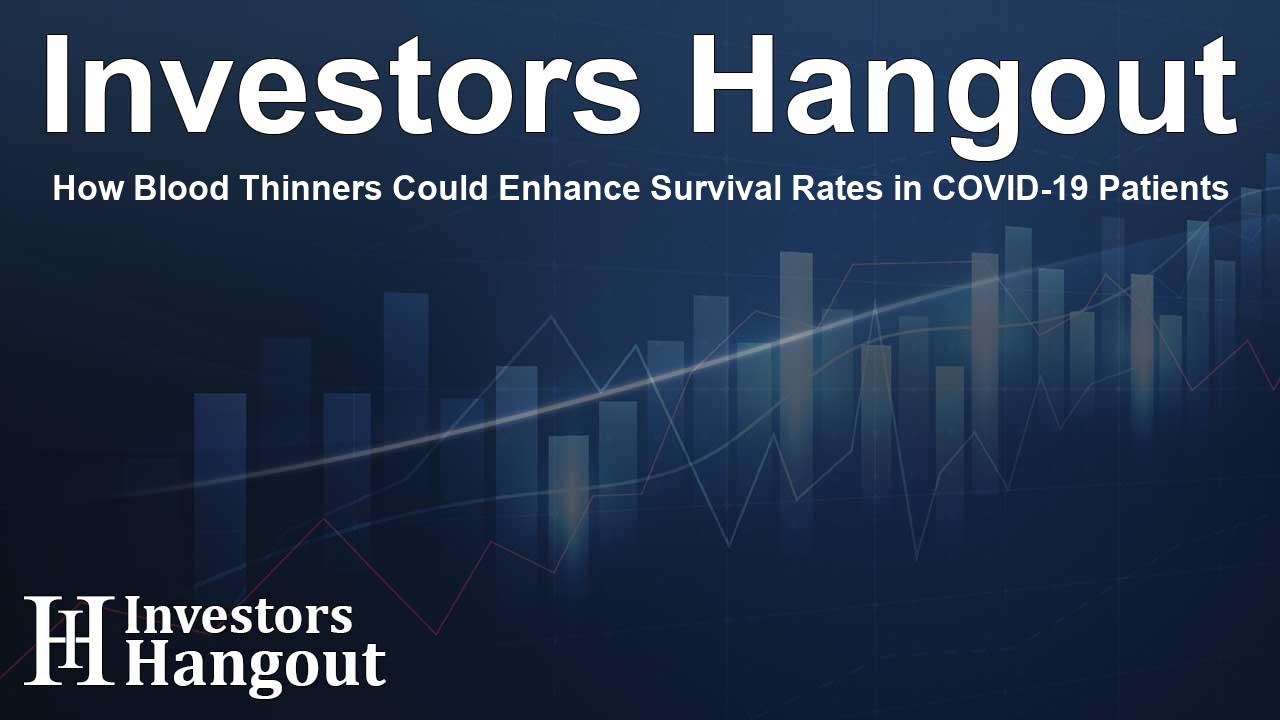How Blood Thinners Could Enhance Survival Rates in COVID-19 Patients

Discovering the Impact of Blood Thinners on COVID-19 Outcomes
As the world grapples with the lingering effects of the COVID-19 pandemic, researchers continue to delve into ways to improve patient care and survival rates. A recent study has unveiled promising outcomes related to the use of therapeutic doses of heparin, a commonly utilized blood thinner. This groundbreaking research emerges from an extensive international collaboration aimed at shedding light on the role of anticoagulation in patients suffering from COVID-19.
The Study Overview and Its Significance
The analysis reviewed 22 clinical trials encompassing 11,000 patients across multiple nations, coordinated by the World Health Organization (WHO). The results were published in a prominent medical journal, emphasizing the urgency to clarify previous inconsistencies in research surrounding blood thinners and COVID-19.
Research Findings
The comprehensive study demonstrated that administering therapeutic doses of heparin led to a remarkable reduction in the risk of mortality among hospitalized patients. This analysis sought to address the conflicting data from prior studies, particularly focusing on the therapeutic benefits of heparin in treating patients with this disease.
Insights from Medical Professionals
Dr. Alex C. Spyropoulos, a leading figure in this research, expressed that the findings could provide essential guidance for healthcare practitioners managing COVID-19 patients. He explained, “While blood thinners are already a staple in patient care, evidence from this study suggests that therapeutic doses of heparin significantly affect patient outcomes.”
Personalized Treatment Approaches
The balance between preventing severe blood clots and reducing the risk of bleeding complications is crucial. Dr. Spyropoulos highlighted the importance of tailored treatment strategies for each patient, based on individual health circumstances.
Detailed Analysis of Heparin Dosages
In investigating various dosage levels of heparin, researchers evaluated standard low doses, intermediate amounts, and high therapeutic doses. The findings revealed that patients receiving the higher therapeutic doses exhibited a 23% lower risk of death within a four-week period compared to those on lower dosages. Notably, these outcomes were primarily observed among patients in general wards rather than intensive care units.
Risks Associated with Higher Dosage
However, it is essential to acknowledge that with greater doses of blood thinners comes an elevated risk of significant bleeding episodes. The study's implications suggest more substantial clinical oversight is necessary when administering higher doses of anticoagulants.
Broader Implications of Research
Blood clot complications present formidable challenges for hospitalized COVID-19 patients, as stated by Dr. Kevin J. Tracey, president and CEO at the Feinstein Institutes. His insights emphasize the invaluable guidance this research offers towards therapeutic protocols that can minimize patient morbidity and mortality.
Meta-Analysis Approach
This particular study utilized a prospective meta-analysis methodology, allowing for a fusion of data from different clinical trials. The collaborative effort ensured an unbiased perspective regarding the treatment impacts, creating a detailed and comprehensive overview of therapeutic strategies.
Dr. Spyropoulos and His Ongoing Research
A recognized expert in blood clot studies, Dr. Spyropoulos has been pivotal in researching clot formation in COVID-19 patients. His past work, including studies on rivaroxaban's effectiveness against hospitalizations and complications, shapes the current conversation on blood thinners' role in managing health crises.
About the Feinstein Institutes
The Feinstein Institutes for Medical Research represents a nexus of innovation in health care, serving as a research foundation for Northwell Health. With expansive research labs and thousands of studies, the institutes are committed to advancing medical knowledge across multiple fields including genetics, cancer, and public health.
Frequently Asked Questions
What is the main finding of the recent heparin study?
The study found that therapeutic doses of heparin significantly reduce mortality rates in hospitalized COVID-19 patients.
What types of dosages were analyzed in the research?
Researchers reviewed standard low, intermediate, and high therapeutic doses of heparin to assess their effects on patient outcomes.
How did the findings impact treatment strategies?
The findings underscore the need for personalized treatment approaches based on individual patient risk factors to balance clot prevention and bleeding risks.
Why is Dr. Spyropoulos's research significant?
Dr. Spyropoulos's work is crucial as it guides clinical practices related to anticoagulation in COVID-19 patients, improving their survival chances.
What role do the Feinstein Institutes play in medical research?
The Feinstein Institutes focus on advancing various medical fields through extensive research and innovation, contributing to significant breakthroughs in health care.
About Investors Hangout
Investors Hangout is a leading online stock forum for financial discussion and learning, offering a wide range of free tools and resources. It draws in traders of all levels, who exchange market knowledge, investigate trading tactics, and keep an eye on industry developments in real time. Featuring financial articles, stock message boards, quotes, charts, company profiles, and live news updates. Through cooperative learning and a wealth of informational resources, it helps users from novices creating their first portfolios to experts honing their techniques. Join Investors Hangout today: https://investorshangout.com/
Disclaimer: The content of this article is solely for general informational purposes only; it does not represent legal, financial, or investment advice. Investors Hangout does not offer financial advice; the author is not a licensed financial advisor. Consult a qualified advisor before making any financial or investment decisions based on this article. The author's interpretation of publicly available data shapes the opinions presented here; as a result, they should not be taken as advice to purchase, sell, or hold any securities mentioned or any other investments. The author does not guarantee the accuracy, completeness, or timeliness of any material, providing it "as is." Information and market conditions may change; past performance is not indicative of future outcomes. If any of the material offered here is inaccurate, please contact us for corrections.